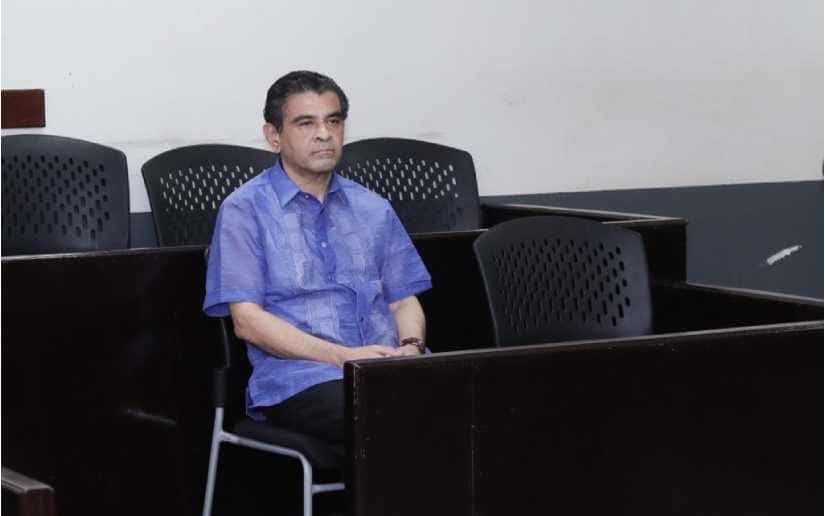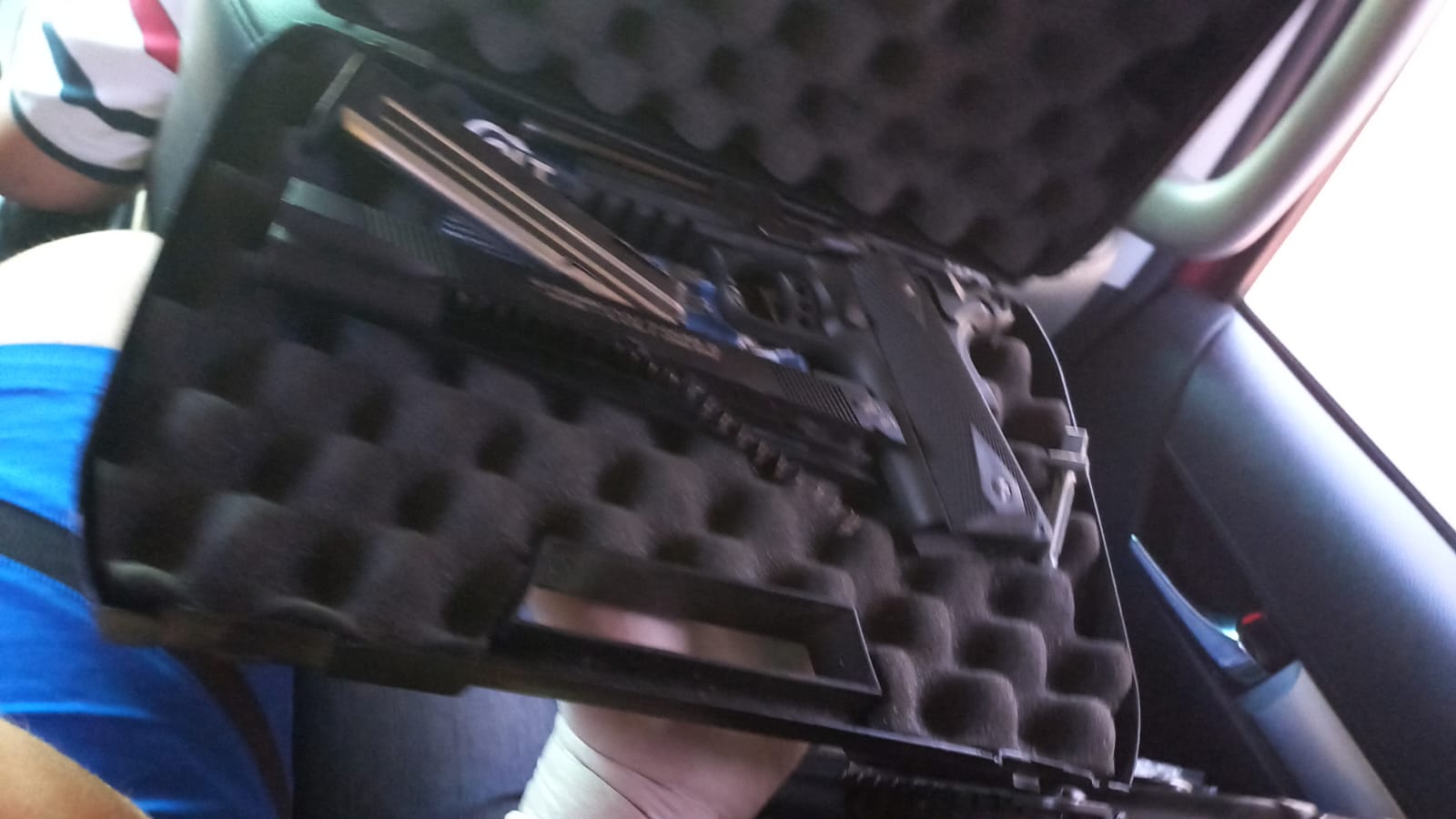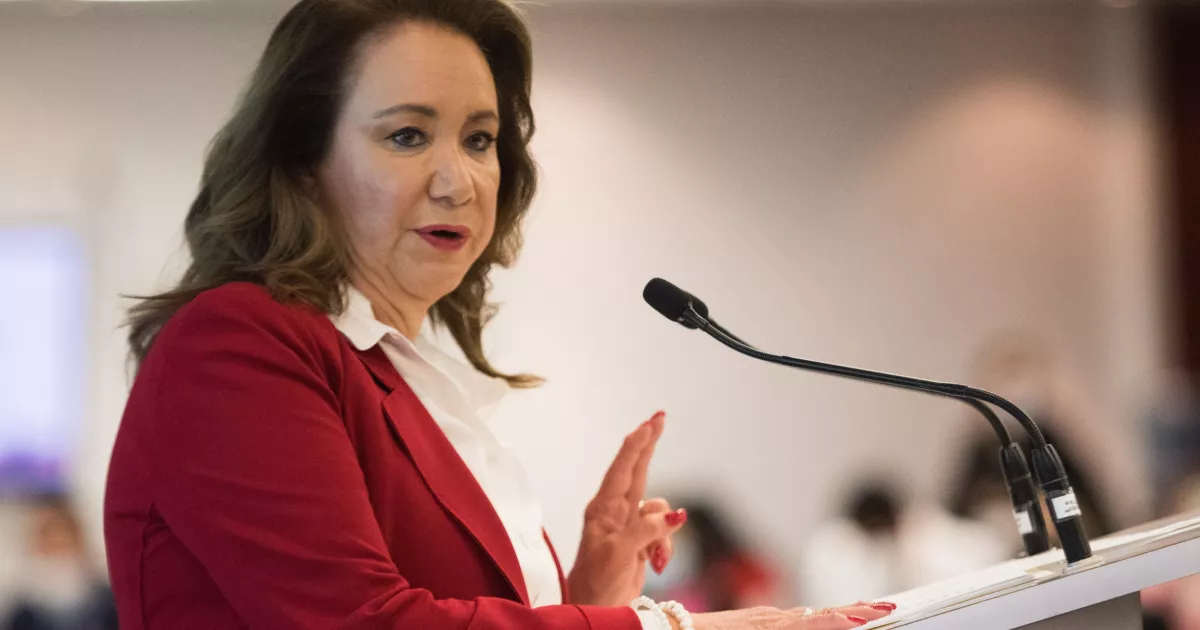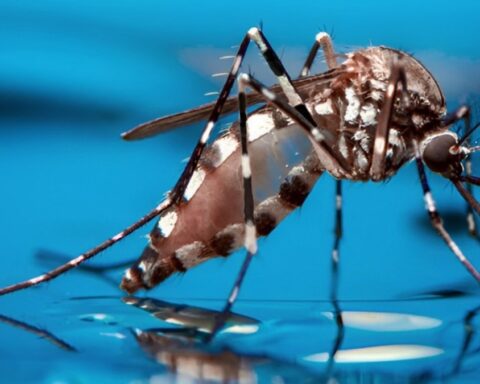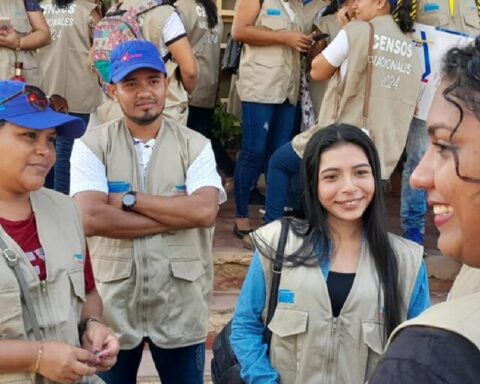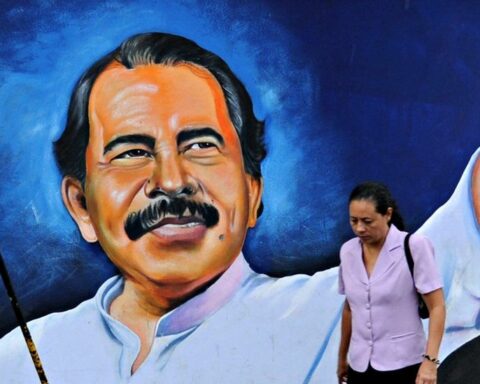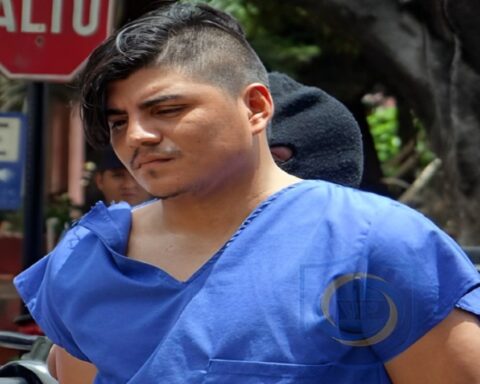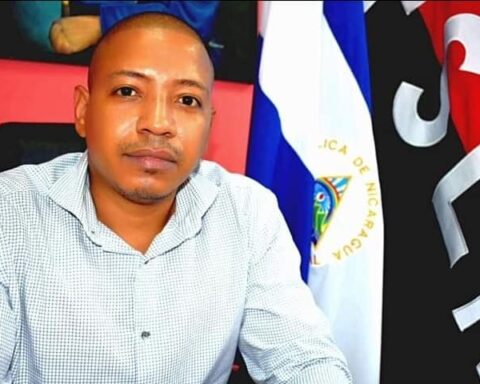The judicial hearing behind closed doors against Monsignor Rolando Álvarez, bishop of the Diocese of Matagalpa and apostolic administrator of the Estelí Diocese, is scheduled for this Tuesday, January 10, 2023, after the religious has spent 144 days imprisoned by the regime of Daniel Ortega and Rosario Murillo, at a home in Managua.
Álvarez, one of the prophetic voices of the Nicaraguan Episcopal Conference, recognized for his pastoral work in northern Nicaragua and his defense of human rights against state oppression, in 2022 he became the first bishop of the Catholic Church to be politically prosecuted.
The harassment against Monsignor Rolando Álvarez dates back to 2018, but the last episodes occurred in 2022, before the Police kidnapped him. Between May and August of that year, Álvarez was followed in Managua and finally he was besieged in the Matagalpa Curia from August 4 and on August 19 he was transferred to Managua, accused of fomenting violence.
Almost four months after this arbitrary detention, the regime’s prosecutors charged him with the crimes of “conspiracy to undermine national integrity” and “propagation of false news.” They are the same ones attributed to other political prisoners in processes lacking guarantees for the accused.
Both the Attorney General’s Office and the judicial authorities keep the accusation confidential and it is impossible to know what the State’s evidence is against the bishop.
Contrary to this state persecution, CONFIDENTIAL explains the eight key facts that show why, according to independent legal experts, it is the State that is convicted before public opinion for its anomalous and illegal actions against the bishop.
- Prosecutor and judges are from the FSLN. The judge in charge of the process is Gloria María Saavedra Corrales. The prosecutor who filed the accusation is Manuel de Jesús Rugama. Both are obedient to the ruling party and have a history of persecuting political prisoners. According to the case registered under matter 026463-ORM4-2022-PN, in the case brought before the Managua Court of the Tenth Criminal Court, Father Uriel Antonio Vallejos, currently in exile in Costa Rica and to whom the dictatorship circulated before the Interpol. When the accusation against the bishop was made known, the regime published a photo in which the priest appears thin before the judicial officers, but maintains a serene posture.
We recommend you: Prosecutor’s Office accuses Bishop Rolando Álvarez of “conspiracy” and “cybercrime” - Opacity and secrecy. As has happened with other prisoners of conscience, the accusatory libels filed by the State are unknown. The operation to condemn opponents is carried out by a machinery of judges and prosecutors that they comply with the order to imprison and leave the defendants defenseless, preventing their lawyers from accessing the files, while complaints of torture and isolation of the inmates proliferate. In the case of Álvarez, the official communications have not specified the place where he is being held. While the Police said in their press release 78-2022who was under house arrest in Managua, Archbishop Leopoldo Brenes assured on August 19 that he spoke with him at his family residence.
- false accusations. The Mosaico media outlet revealed details about the accusation against father Óscar Benavidez, arrested in Mulukukú on August 14, 2022, who is linked to Álvarez according to the authorities.
“Álvarez, who, taking advantage of his religious condition, devoid of any spiritual dimension and avid for political leadership, uses his role in society to try to turn the people against the Government, executing direct and destabilizing actions carried out from August 1 to 16 of 2022 in the Basilica of Matagalpa carried out a series of provocations to contaminate the civil life of the country and produce a climate of confrontation on the eve of the municipal elections scheduled for November 2022, to damage the credibility of the Government, “they said in the relationship of “facts” in the case of Benavidez.
Last August, before his violent transfer to Managua after the police assault on the Matagalpa Curia, Álvarez spent in permanent prayer. He is remembered when he faced his persecutors with a monstrance in hand, on the sidewalk of the Episcopal Palace.
You can also read: Character of the year 2022: Bishop Rolando Álvarez, prisoner of conscience of the dictatorship
- They did not meet the 90-day deadline. Although following a reform approved by Sandinista legislators in 2021, Nicaragua’s Penal Code now allows detentions of up to 90 days for an “investigation” to take place and suspects to be charged in court, Álvarez’s indictment took almost four months to complete. manufactured, violating even the very norms created by the dictatorship.
- The dangerous “Special Cybercrime Law”. This norm punishes with imprisonment of two to four years the disclosure of “lies”. It was approved in 2020 as part of the combo of repressive laws with which the regime persecuted the opposition in 2021, including the imprisonment of more than 40 people, including political, economic and social leaders before the 2021 vote. The concept of “conspiracy” is also established in article 410 of the same law and the state’s application of the same has been questioned by independent jurists as a mechanism used to illegally and unfairly persecute Nicaraguans.
- Persecution against the Catholic Church. The arrest of the Catholic hierarch occurred in the midst of a harassment of the religious never seen in the recent history of Nicaragua. Two more priests—one from Granada and the other from Boaco—are sentenced to prison, and half a dozen other religious from the Matagalpa Curia remain in cells in El Chipote as political prisoners, pending sentences. Others were banished, as were 18 sisters of the order of the Sisters of Charity.
The apostolic nuncio, Waldemar Stanisław Sommertag, was also expelled on March 12, 2022. Until now, Pope Francis has pronounced himself cautiously on the crisis in Nicaragua and has opted for dialogue, which has caused criticism both nationally and internationally. international.
The State also accused the priests and laity who accompanied the bishop when he was forcibly transferred from Matagalpa to Managua in September of last year. The priests are Ramiro Tijerino Chávez, José Luis Díaz Cruz, Sadiel Antonio Eugarrios Cano, also the deacon Raúl Antonio Vega, the seminarians Darvin Leiva Mendoza and Melkin Centeno, the photojournalist Sergio Cadena Flores. In December 2022, the Police also captured two journalists from the Diocese of Matagalpa: Manuel Obando and Wilberto Artola, to demonstrate that the persecution continues against the entire circle close to Bishop Rolando Álvarez.
Also: Ortega intensifies repression: 396 attacks against the Catholic Church since 2018
- The siege against the bishop. The regime has continued to harass the bishop since 2018, who has also been the target of smear campaigns. The Police kept him surrounded for days in the Las Colinas parish in Managua for five days in May 2022, which motivated the religious to fast indefinitely to demand an end to the harassment. They allowed him to leave Matagalpa. But, since August 4, they have imposed a police cordon to restrict their movements.
- The hate speech sets the tone for the viciousness against the bishop. Vice President Rosario Murillo has accused Catholic leaders of coup plotters for their position in defense of human rights, in the face of the abuses perpetrated by the dictatorship. Ortega even accused without evidence, on September 29 of last year, that religious asked that he be assassinated during the 2018 crisis. In that speech, he affirmed that the Catholic Church was the “perfect dictatorship.”
A silent future? Do not let that happen
Despite the persecution and censorship of the Ortega-Murillo regime, we continue our work in a context in which informing the population is paid with jail. This resistance would not be possible without your support. If it is among your possibilities, we invite you to support us with a membership or a donation. Your contribution will guarantee that more Nicaraguans have access to reliable and quality information — without paywalls — at a crucial moment for the future of the country. Thank you for joining this collective effort in defense of press freedom.
Source link

